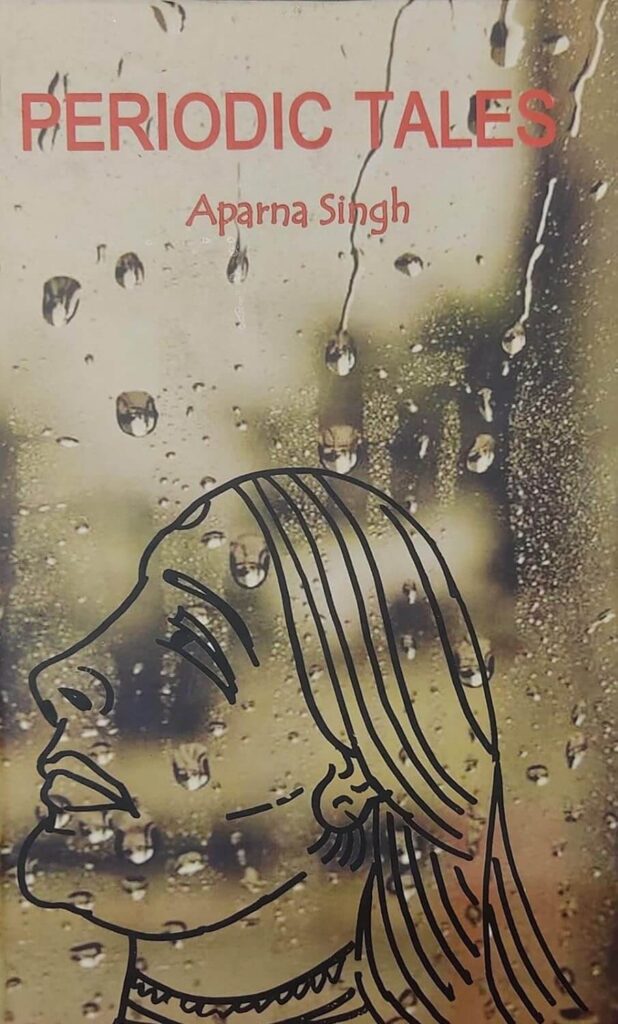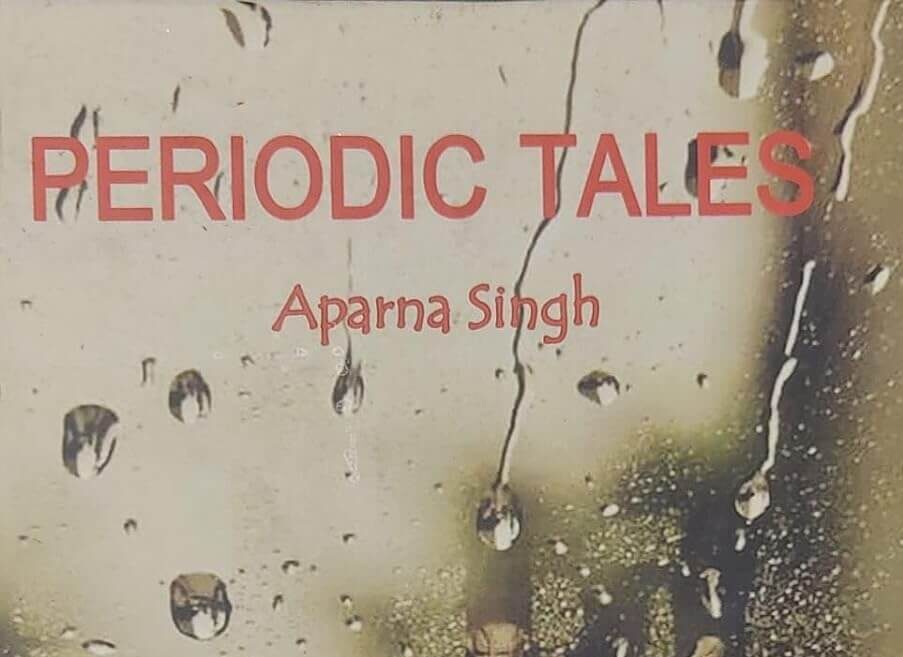Reading Time: 4 minutes
Chaitali reviews Dr. Aparna’s “Periodic Tales,” that explores the stigmatised topic of menstruation, challenging societal norms and beliefs, exclusively for Different Truths.

In In her ground-breaking book ‘Periodic Tales’, Dr. Aparna Singh delves into the intimate and often stigmatised realm of menstruation through 20 poignant short stories inspired by real events. Through her exploration of women’s experiences during menstruation, Dr. Singh invites readers to confront their own biases and misconceptions, paving the way for greater understanding and sympathy.
One of the most striking aspects of ‘Periodic Tales’ is its unflinching portrayal of the association between menstruation and impurity prevalent in our culture. Dr. Singh fearlessly confronts the deep-rooted beliefs and practices that have marginalised women for centuries, offering readers a glimpse into the profound impact of such taboos on individual lives.
“There are very few things that generate the kind of attraction and anxiety that a female body provokes…”
In In the Author’s note, Dr. Singh says: “There are very few things that generate the kind of attraction and anxiety that a female body provokes. These bodies have been chased, hounded, and chronicled with an unabated fervour over the centuries.” So much so that it doesn’t feel like one’s own. This is beautifully represented by the first story in this collection, ‘Her body’, where Rima, in the throes of ‘paralysing abdominal cramps that nailed her to the bed’, her mother-in-law keeps her confined to the room for those three days. The idea is that Rima must deal with the ‘impurity’ and keep it to herself. without bringing it to the kitchen, living room, and rest of their home.
Such a stigma is found in the Bible too, in the passage Leviticus, chapter 15, verse 19–33 that asserts that women (along with anything they lie or sit on) become ‘unclean’ during menstruation. If a non-menstruating person touches either the menstrual blood, or anything the woman has touched, they too will become unclean. The very first story sets the tone of this powerful narrative. challenges societal norms and dogmatic practices that restrict women’s freedom.
Women, over centuries, have faced prejudice around the world in the form of sexism and discrimination. She must deal with misogyny and objectification, and the brutality perpetuated against her body. In the story ‘Dear Sakhi’, the author summarises it beautifully: ‘How can my blood be impure, Sakhi? How can it be? anything but contamination? How can it be? desecration? It’s been thousands of years, and I still carry it as a burden of guilt. I often wonder if my blessing is a curse.’ The persuasive culture of shame has long surrounded menstruation. Women have been discouraged and stifled from having an open dialogue around the subject.
Culture places restrictions on menstruation, just like it does with other taboo subjects.
Culture places restrictions on menstruation, just like it does with other taboo subjects. Girls are raised in a way that makes them uncomfortable talking about menstruation. Usually, when they talk, their focus is mainly on pain and discomfort and is largely negative. In ‘Periodic Tales’ we do come across such characters, for example in the sensitive and heart-touching story ‘Maa’. Maa suffers every month from what was considered by her family as ‘a regular womanly mess’. But she was not offered adequate medical help to fight the discomfort it brought her every month. Her pain was shrugged off with a callous disregard.

Dr. Singh’s compelling storytelling takes readers on a journey through the lived experiences of women from diverse backgrounds, showcasing the myriad ways in which menstruation shapes their lives. In the story ‘Pad-man’, the author shows it through the eyes of a teenager boy Rohan that menstruation is a common bodily function, and ‘it was wrong to make girls feel impure once they reached puberty’ just because of this. With such characters, the author is urging the youth to re-evaluate their dogmatic approach that persists in putting limits to better understanding.
Moreover, the book serves as a powerful advocacy tool for menstrual hygiene and access to sanitary pads. Through her narratives, the author highlights the dire consequences of inadequate menstrual hygiene practices, particularly in communities where access to sanitary products is limited or non-existent. The characters in the stories ‘Shibani’, ‘Maa,’ ‘Charcoal and Wood Dust’ lack access to sanitary products and can manage their periods by using cloth during menstruation. Reusing cloth that retained residual stains of menstrual blood exposes these women to multiple local infections. Lack of awareness and non-affordability of sanitary pads have been given as the major reasons for these women using cloth as menstrual protection. By centering these issues in her storytelling, the author effectively underscores the urgency of addressing menstrual health on a global scale.
What sets ‘Periodic Tales’ apart is its unwavering commitment to amplifying women’s voices. Singh’s characters are allowed to speak their truths and she reclaims their narratives in a world that often seeks to silence them. Each story in this collection is a testament to the resilience and strength of women in the face of societal oppression and cultural stigma.
In addition to its thematic depth, ‘Periodic Tales’ is also a masterclass in storytelling. Singh’s prose is simple but evocative, drawing the readers into the inner lives of her characters with precision and empathy. Whether exploring the pain of menstrual cramps or the euphoria of liberation, she imbues each story with an emotional resonance that lingers long after the final page.
Overall, ‘Periodic Tales’ is a tour de force that not only narrates the experiences of women during menstruation…
Overall, ‘Periodic Tales’ is a tour de force that not only narrates the experiences of women during menstruation, but also educates and empowers. In a world where menstruation is still shrouded in silence and shame in some cultures, this book serves as a beacon of hope and change.
Cover photo sourced by the reviewer.

















